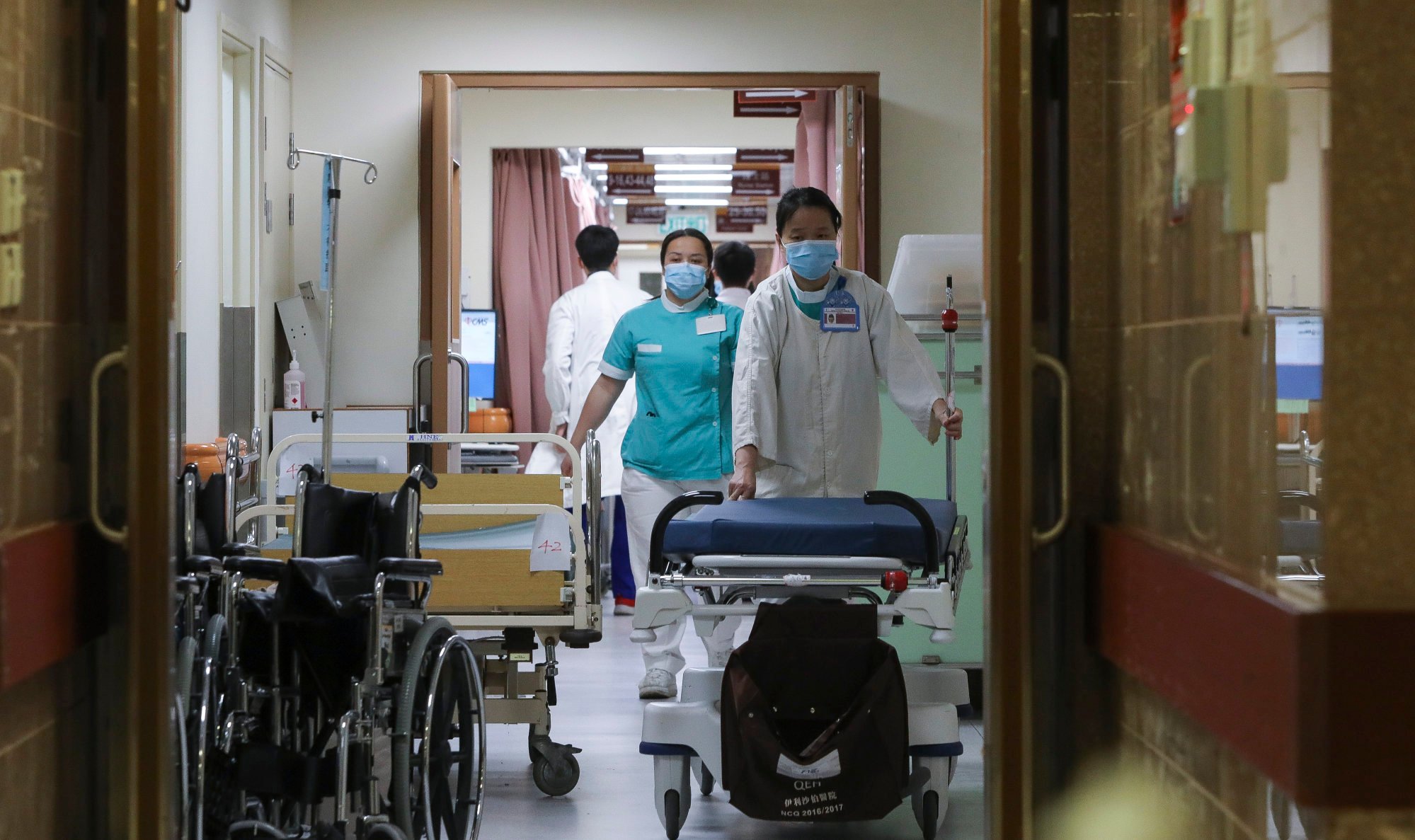
Hong Kong nurse exchange scheme with mainland China has eased pressure on city hospitals, staff say
- City nurses dismiss concerns that need for mentor for Greater Bay Area nurses has increased their workload
- First group of nurses from Guangdong arrived in April; 300 expected to take part in scheme over two years
The local nurses spoke out on Monday after concerns that mainland nurses had added to the burden on the city’s healthcare system.
Savina Sze Yee-man, a nurse consultant in gerontology in New Territories East, said that mainland colleagues had helped share the work burden.
“What they offer is not only a pair of ordinary hands, but they are also very professional and knowledgeable,” Sze, who is a mentor to mainland nurses, said.
“They are able to work with us to provide better services. They aren’t a burden to frontline staff in hospital wards, but can help share the workload.”

Wong Mei-ling, a ward manager in medicine at Queen Elizabeth Hospital, highlighted an incident where a patient seriously ill with Covid-19 was treated quickly as colleagues from Guangdong were familiar with a machine that provided high-flow oxygen therapy, which is also used in the mainland.
Liu Jiali, a nurse from Guangzhou’s Sun Yat-sen University Cancer Centre, arrived in Hong Kong with a doctorate and seven years of nursing experience.
Liu, posted to Sha Tin Hospital, said she wanted to take her experience of the city’s geriatric nurse clinics to her hospital.
“Hong Kong nurses have done well in conducting comprehensive assessments [on elderly patients]. This is something we can learn from,” she added.
Liu said similar nurse clinics, which carry out dementia assessments and use other non-pharmaceutical treatments for elderly patients, were not used in her mainland workplace.
Hong Kong welcomes more Guangdong healthcare workers under exchange programme
Yang Minfei, from Guangdong Provincial Hospital of Chinese Medicine, said she did not find the work in Hong Kong much different.
She added she did not have communication problems with patients at her exchange in Queen Elizabeth Hospital.
“We speak fluent Cantonese, similar to the patients,” she said. “The hospital environment and procedures of nursing work are similar to those in the mainland.”
The first 70 nurses from Guangdong province arrived in the city in April and have worked under supervision in medical and geriatric wards across the seven public hospital clusters.
Concerns were raised before the start of the scheme that mandatory mentoring would cause problems for frontline staff in city hospitals.
But Wong said that one more staff member meant more hands, and that was crucial because many procedures required more than one nurse.
“For example, we need a pair of staff members to change a patient’s diaper,” Wong explained. “For newly admitted cases, we need to conduct assessment and monitor vital signs … these need to be done by a team of people.”
Hong Kong nursing body to decide eligibility criteria for new scheme: health chief
The Nurses Registration Ordinance requires that mainland nurses on exchange schemes in city hospitals must work with a mentor, Dr Leung Ming, the Health Authority’s deputising chief manager for nursing, said.
“We need to work along with them to ensure the exchange of knowledge could be done in a safe manner,” he said.
Leung added that the 100-strong second group of nurses, also from Guangdong, were expected to arrive in the city at the end of the year or early in 2024, after the first 70 had completed their 10 and half month exchange.
He said the authority was in discussions with the Health Commission in Guangdong on the arrangements, including which specialties the visitors would work in and the timings.
He said the third group was likely to arrive by the end of next year.
The scheme was designed to bring 300 nurses from Guangdong to Hong Kong over two years for an exchange of medical knowledge.

